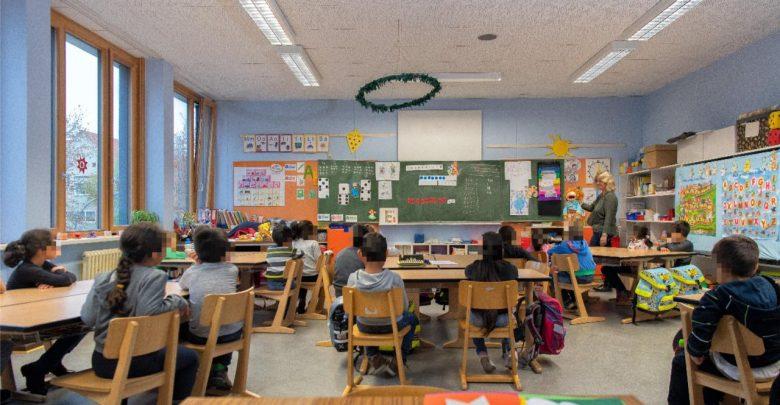
Berlin’s local government announced that the capital’s schools are unable to accommodate 967 refugee children and youth in Berlin. This is considered a continuation of the crisis of shortage of available places in schools, which worsened with the massive exodus of Ukrainian refugees nearly two years ago.
The Education Department of Berlin’s local government reported that these refugees were on the waiting list to obtain a place in the welcome class in Berlin’s schools as of the fifth of last month, according to the “Amal, Berlin!” website.
Numbers indicate differences between Berlin’s districts. In Marzan-Hellersdorf, there were 189 individuals on waiting lists for a place in schools.
In Pankow, the number reached 151, and in Neukölln, the number of those on the waiting list reached 55.
It is expected that welcoming classes will be opened at the refugee reception center on the site of the former Tegel Airport, where there are 790 children and youth from Ukraine.
According to the Education Department, the semester will begin this month.
A survey conducted by the German News Agency showed that about 4,000 refugee children and teenagers who fled to Germany from Ukraine and other countries are currently unable to enroll in public schools due to a lack of available places.
The survey found that four of Germany’s 16 states are currently unable to integrate all refugee children and adolescents into their school system.
The problem is particularly evident in the city state of Berlin and in the state of North Rhine-Westphalia, which is the most populous.
The United Nations High Commissioner for Refugees (UNHCR) had warned, with the start of the new school year across Europe, that refugee children and youth from Ukraine were now facing their third year of interruption in education, as a result of the large-scale invasion that the country was subjected to in February 2022.
In a UNHCR policy paper on education entitled “Education on hold”, UNHCR reported that while between 30 and 50 percent of some 5.9 million Ukrainian refugees across Europe are children, only half of them are enrolled in schools in host countries for the academic year 2022-2023.





